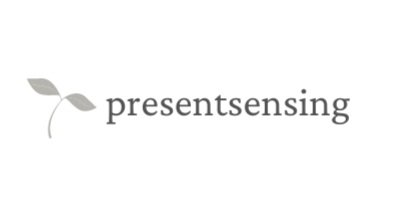
blog
Covid-Conscious and Covid-Cautious Therapy: Community Care in Practice
This post explores Covid-conscious and Covid-cautious therapy as an expression of care, accessibility, and relational responsibility. It reframes Covid caution as community care rather than pathology, and outlines how inclusive, relational Gestalt therapy can support safety, co-settling, and meaningful connection.
What Regulation Feels Like in Your Body: A Phenomenological Exploration of Embodied Experience
An exploration of embodied awareness, emotional regulation, and relational presence through the lens of Gestalt therapy. These writings invite you into phenomenological noticing — how your lived experience becomes the ground for healing, connection, and change.
Exploring Anxiety: Understanding Sensations, Body Awareness, and Therapy Support
If we step outside of the realm of labels and pathology, we can move closer toward understanding your unique experience of anxiety. How do you know you’re feeling anxious? What is enlivened in you when you’re in this experience? When do you notice these sensations/thoughts/feelings that you’ve come to know as anxiety?
Answering these question invites you to build awareness around your experience, rather than trying to manage or remove “symptoms.”
When we close ourselves off from our sensations, we limit ourselves, our experience, our wholeness.
Exploring Codependency: Boundaries, Wholeness, and Therapy Support
In the dominant culture, “codependent” has become a label used to shame and other someone. I’m offering a more heart-full, non-pathologizing way to explore codependency that takes into consideration our inherent wholeness.
From Gratitude List to Wholeness Map: An Inclusive Approach to Awareness
A Wholeness Map can be list or mind map or doodle that supports us to be with all parts of our experience without censoring ourselves. We can write down everything that’s going on for us right now - not just what’s tricky in our lives, and not just what’s sweet - and see it all laid out in one place.
The Wisdom of Your Being: Responsive, Relational, Adaptive, Creative
I believe that each one of us is the sum of our lived experiences, and that these experiences live within us, and manifest in how we make our way in the world.
Belonging Is a Verb: Connection, Difference, and Relational Therapy
Connection, difference, and belonging are fundamental aspects of the human experience.
Difference and Belonging: Rethinking What It Means to Be “Normal”
Pathologizing is defined as “regarding or treating (someone or something) as psychologically abnormal or unhealthy” based on non-normative behaviours they exhibit and/or characteristics they possess (Google English Dictionary, Oxford Languages).
When we view different ways of experiencing the world as “psychologically abnormal or unhealthy,” we force ourselves and others out of belonging and mattering.
There is no right or wrong way to relate, function, think, feel, learn, communicate, be.
The Masks We Wear Help Us to Be Ourselves
Did you play dress up at some point in your life? Who were you trying to be, and are they still with you in some way? What qualities and characteristics were you drawn to act out? What did taking on this character allow you to do that you wouldn’t otherwise have been able to do?
We wear masks in our life in every situation. We often think of masks as being negative or like we’re hiding ourselves, but what if your mask was actually allowing you to be more fully yourself?
How We Talk About Ourselves Matters: Language, the Body, and Therapy
Connecting more deeply with yourself by building awareness around your sensations will support you to better understand the messages your body is communicating to you.
Then we can get to the emotion underneath the sensation, rather than trying to fix or get rid of the sensation.
One way we can strengthen this connection to yourself is by exploring the language we use to talk about our bodies.
Rupture and Repair: The Dance of Relationship
Building intimacy in our relationships comes with great rewards - connection, belonging, closeness - but it is not without risk. Part of strengthening relationships is learning to trust in the rupture-repair process.
Therapy Is a Collaborative Process
In therapy, we work together to make decisions about what path to take.
In a collaborative (therapeutic) relationship, both people matter equally.
Movement Never Lies: Exploring Embodiment in Therapy
Our bodies and our emotions are inextricably linked: our bodies impact our emotional experience, and vice versa. Awareness of nonverbal communication can help us to connect with our emotions and intentions through our bodies, moving toward a deeper understanding of ourselves and our relationships.
What Does It Mean to Be “Present”?
Bringing your attention to your sensations and physical experience is one way to return to the here and now, to the present moment.

